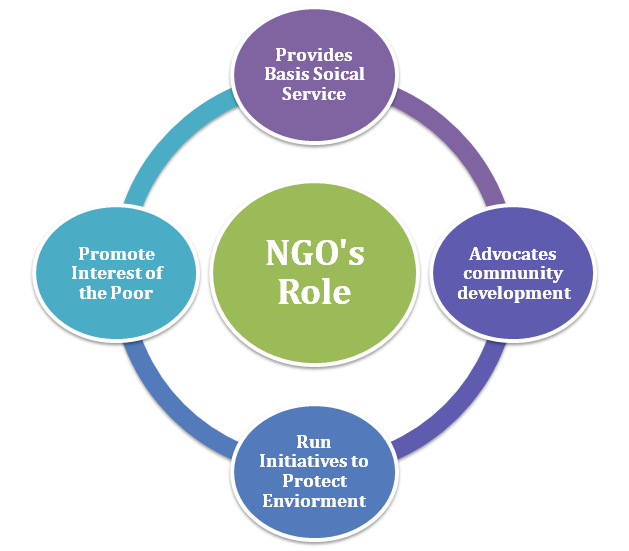Introduction
In today’s rapidly changing world, empowering the youth isn’t just a goal, it’s a necessity. At the heart of this empowerment lies a timeless yet increasingly vital principle: cooperation. The concept of Youth Empowerment: Engaging the Next Generation in Cooperative Values is about equipping young individuals with the mindset, skills, and support systems needed to lead, collaborate, and create meaningful impact. As challenges such as inequality, unemployment, and climate change intensify, teaching cooperative values like solidarity, democracy, and social responsibility can shape youth into compassionate, competent, and community-driven leaders of tomorrow. This article explores five critical areas where youth engagement in cooperative principles makes a lasting difference.
Understanding Empowerment Through Cooperative Values
Defining Youth Empowerment and Its Role in Development
Youth empowerment is the process of equipping young individuals with the tools, knowledge, confidence, and opportunities needed to influence decisions that affect their lives and communities. It goes beyond simply involving youth in activities, it’s about trusting them with responsibilities, recognizing their potential, and enabling them to be agents of change. In development, empowered youth serve as catalysts for progress. They innovate, lead, and challenge systems to create more inclusive and sustainable societies.
Empowered youth participate meaningfully in social, political, and economic spheres. This participation enhances their personal growth while contributing to broader national development goals such as poverty reduction, good governance, and community resilience. When young people are involved in shaping their futures, they are more likely to promote peace, equity, and sustainable practices.
Key Cooperative Principles: Equality, Equity, Democracy, and Solidarity
Cooperative values align seamlessly with the goals of youth empowerment. The International Cooperative Alliance (ICA) identifies seven core principles, but among them, equality, equity, democracy, and solidarity are especially vital for youth development:
- Equality ensures that every individual, regardless of background has the same rights, responsibilities, and voice within a group or society.
- Equity recognizes that fairness sometimes means offering different levels of support based on individual needs, ensuring everyone has an equal opportunity to succeed.
- Democracy promotes participatory decision-making, giving each member a vote and a voice.
- Solidarity encourages mutual support, collective responsibility, and unity in achieving common goals.
These principles teach youth that collaboration and shared power can be more impactful than competition and hierarchy.
How Cooperative Values Lay the Foundation for Youth Leadership and Active Citizenship
Cooperative values provide a framework for nurturing young leaders who are inclusive, ethical, and driven by collective well-being. When youth understand and embrace equality and equity, they develop empathy and respect for diversity. Democratic participation teaches them to listen, negotiate, and lead with accountability. Solidarity fosters a sense of belonging and duty to community which are key traits of responsible citizenship.
By engaging in cooperative activities like youth co-ops, student councils, or community service, young people learn to lead not for personal gain, but for the greater good. They gain real-world experience in teamwork, conflict resolution, and ethical decision-making. Over time, these experiences mold them into informed citizens who contribute actively to democracy, development, and societal harmony.
Education, Digital Tools & Engagement Strategies
Education is the cornerstone of youth empowerment, especially when the goal is to instill cooperative values that encourage shared responsibility, inclusivity, and social justice. By combining structured learning with real-world experiences and digital tools, young individuals can develop the skills and values needed to become active contributors in their communities. This section explores how formal education, informal learning environments, and digital engagement can effectively nurture the next generation of cooperative leaders.
Explore Formal and Informal Educational Methods to Teach Cooperative Values
Formal education systems such as schools, colleges, and universities offer a structured platform to introduce cooperative principles. By incorporating topics like community economics, social responsibility, teamwork, and civic engagement into the curriculum, educators can create a foundational understanding of cooperation.
Programs such as:
- Student councils and clubs that practice democratic leadership
- Service-learning projects that involve collaborative community improvement
- Classroom debates and simulations that teach consensus-building
These experiences help youth understand how cooperation works in real-life settings.
On the other hand, informal education plays a vital role in reinforcing these concepts. This includes workshops, after-school programs, community events, and even youth cooperatives themselves. Informal methods often feel more relaxed and engaging, allowing for:
- Hands-on participation
- Learning through doing
- Exposure to diverse perspectives
This combination of formal structure and informal flexibility provides a holistic educational approach that nurtures both knowledge and character.
Highlight the Power of Peer Learning, Mentorship, and Family Involvement
Peer learning creates a dynamic where young people teach, inspire, and support each other. Whether it’s through student-led initiatives or collaborative projects, learning from peers encourages responsibility and leadership.
Meanwhile, mentorship, especially from experienced cooperative leaders, educators, or community activists offers guidance and motivation. Mentors help young people:
- Navigate challenges
- Set personal and cooperative goals
- Feel supported in leadership roles
Lastly, family involvement is a powerful but often overlooked pillar. When families discuss fairness, share chores, or make joint decisions at home, they naturally model the cooperative values of equity, responsibility, and mutual respect. Engaged parents and guardians also help reinforce lessons learned in school or community programs.
Showcase the Role of Social Media, Online Platforms, and Digital Literacy in Youth Mobilization

Today’s youth are digital natives. Social media and online platforms are not just tools for connection, they’re powerful instruments for mobilization, education, and activism.
Platforms like:
- Instagram, TikTok, and YouTube allow youth to share stories of cooperative success, promote events, and discuss social issues.
- WhatsApp and Discord enable real-time collaboration and brainstorming.
- Online learning portals like Coursera or EdX offer free courses on leadership, civic engagement, and community development.
Digital literacy is the ability to critically evaluate and effectively use online information, which is essential. It empowers youth to:
- Identify trustworthy resources
- Create digital campaigns
- Start or join virtual cooperatives
These platforms also offer global reach, connecting youth from different regions to collaborate on shared goals, exchange ideas, and celebrate cooperative achievements.
Institutional Support & Sustainable Models
Empowering youth to participate in cooperative ventures requires more than enthusiasm and grassroots energy. It demands strong institutional backing and sustainable systems. Governments, NGOs, and international bodies play a pivotal role in nurturing the environments where youth cooperatives can thrive. These institutions provide the policy infrastructure, financial support, and collaborative networks needed to transform ideas into impactful, long-lasting change.
Examining the Role of Governments, NGOs, and International Bodies in Promoting Youth Cooperatives

Governments at national and local levels are crucial in setting the legal and regulatory frameworks that allow cooperatives to operate freely and transparently. By recognizing youth-led cooperatives as legitimate business entities, states empower young entrepreneurs to participate in the formal economy. Some governments even embed cooperative education in school curricula or support national youth policies that promote cooperative engagement.
Non-Governmental Organizations (NGOs) act as catalysts in the cooperative movement. They often provide training, resources, and mentorship programs tailored to young people. Many NGOs also serve as intermediaries between youth and larger funding institutions, helping navigate complex bureaucracies and applications. For instance, organizations like Oxfam, Youth Co:Lab, and The Cooperative College have launched successful initiatives supporting youth cooperatives globally.
International bodies such as the International Cooperative Alliance (ICA), UNESCO, and the International Labour Organization (ILO) advocate for cooperative principles and actively support youth-focused initiatives. They offer cross-border collaborations, research tools, and funding opportunities aimed at making the cooperative model more accessible and scalable for young leaders.
Sharing Insights on Policies, Funding, and Partnerships that Sustain Engagement
Long-term youth empowerment within cooperative frameworks depends heavily on well-designed policies that prioritize inclusivity, access to capital, and institutional integration. Policies that reduce tax burdens, provide startup incentives, or offer cooperative-focused education can significantly boost participation.
Funding mechanisms are equally vital. These include:
- Youth cooperative grants and microloans
- Capacity-building funds for training and mentorship
- Seed capital from development banks or philanthropic foundations
Public-private partnerships (PPPs) also play a transformative role. Collaborations between universities, corporate sponsors, and community groups can create sustainable ecosystems where youth-led cooperatives flourish. These partnerships often offer technical expertise, market access, and long-term mentoring that grassroots initiatives alone may struggle to secure.
Stressing the Importance of Building Long-Term, Scalable Cooperative Frameworks
To move beyond short-term projects, stakeholders must focus on scalable and adaptable cooperative frameworks. These frameworks should allow young cooperators to:
- Expand their reach beyond local communities
- Adapt their models to different economic and cultural contexts
- Receive continuous support through policy updates and funding cycles
Sustainability also hinges on intergenerational knowledge transfer, where experienced cooperators mentor younger members. This ensures that cooperative values and leadership skills are preserved and evolved over time.
Creating national cooperative youth networks, supported by digital infrastructure, can also foster consistent dialogue, innovation, and shared growth. These platforms help document best practices, track impact, and unify efforts across regions.
Overcoming Barriers & Building an Inclusive Future
Identifying Common Challenges: Apathy, Access, and Lack of Resources
While the vision of engaging youth in cooperative values is powerful, the path to achieving it is not without obstacles. One of the primary barriers is apathy; a lack of motivation or interest from young people. This can stem from disillusionment with institutions, limited exposure to cooperative models, or a perceived lack of impact. Without relatable role models or meaningful engagement, many youth feel disconnected from collective action.
Access poses another major hurdle. Rural and marginalized youth often lack exposure to cooperative opportunities due to geographic isolation, inadequate infrastructure, or limited internet connectivity. Additionally, systemic issues such as language barriers, cultural exclusion, and discrimination further restrict access for minority and vulnerable groups.
Finally, a lack of resources, including funding, mentorship, training, and safe spaces limits the potential of youth to actively participate in or start cooperative initiatives. Many youth-led programs operate on tight budgets, making it difficult to scale efforts or sustain enthusiasm over time.
Offering Solutions to Foster Inclusivity and Representation
Addressing these barriers requires a multifaceted and inclusive approach. First, to combat apathy, it’s vital to amplify youth voices and success stories through relatable platforms like social media. Highlighting real-life role models and showcasing the tangible impact of cooperatives can reignite enthusiasm and a sense of purpose.
To improve access, stakeholders must invest in inclusive education and outreach programs that are language-appropriate, culturally sensitive, and geographically targeted. Mobile learning centers, community radio, and offline training materials can reach youth who are disconnected from digital channels.
Additionally, financial and institutional support is key. Governments, NGOs, and cooperatives should collaborate to offer youth grants, microloans, and resource hubs. These can fund youth-led projects, provide safe spaces for experimentation, and ensure long-term sustainability. Creating leadership pipelines within existing cooperatives also ensures diverse representation and encourages mentorship between generations.
Looking Ahead: The Future of Cooperative Leadership
The future of cooperative leadership lies in the hands of young, dynamic, and diverse individuals who are empowered, connected, and visionary. As the world faces pressing global issues, from climate change to inequality, youth are uniquely positioned to lead with innovation and empathy.
We can expect to see:
- A rise in youth-led digital cooperatives using tech to solve community problems.
- Increased intergenerational collaboration, where seasoned co-op members mentor emerging youth leaders.
- More emphasis on global cooperation, where youth across nations unite under shared cooperative goals.
By investing in inclusive engagement now, we pave the way for a cooperative movement that reflects the diversity, creativity, and determination of the next generation. This isn’t just about preparing youth for the future; it’s about letting them shape it.
Conclusion
Change starts with us, and it starts now. The future of cooperative leadership isn’t a distant dream; it’s a mission already unfolding in schools, communities, and youth clubs around the world. But here’s the question: Are you ready to step into your role as a builder of better systems, a voice for your peers, and a leader grounded in values that uplift everyone?
Look around your community, what’s missing, and what could be better if people came together with a shared purpose? What if you were the one to start that movement, to lead that cooperative, to inspire your peers to create something that lasts? The world is waiting for your ideas, your courage, and your voice.
Here’s how you can take the first step:
- Get informed: Learn about cooperative principles and how they work in real-life situations. Watch videos, join webinars, or attend youth-focused workshops.
- Start small: Form a school club, gather friends to solve a local issue, or brainstorm a project you care about.
- Seek mentorship: Reach out to experienced cooperative members or community leaders who can guide and support your journey.
- Be inclusive: Invite everyone to the table; different backgrounds, different abilities, different voices. Unity through diversity is a superpower.
- Think long-term: Document your progress, measure impact, and don’t be afraid to ask for feedback. Great cooperatives are built on learning and evolving.
Still wondering where to begin? Let us introduce you to a partner that’s as passionate about youth empowerment as you are, God’s Treasury Cooperative.
They don’t just talk; they walk the path with you. Whether you’re dreaming up your first business, planning how to save and invest, or looking to scale a venture you’ve already started, God’s Treasury Cooperative offers tailored business ideas, smart savings and investment plans, and powerful strategies for business growth.
So, what are you waiting for? Join God’s Treasury Cooperative today and become part of a movement that empowers, uplifts, and transforms. The next generation of cooperative leaders is rising, and yes, that includes you.


